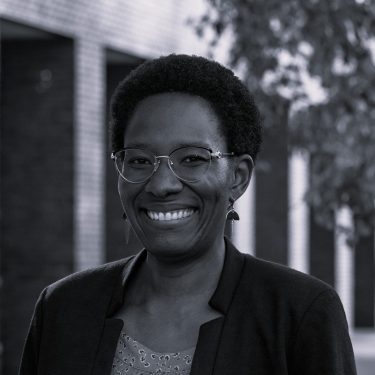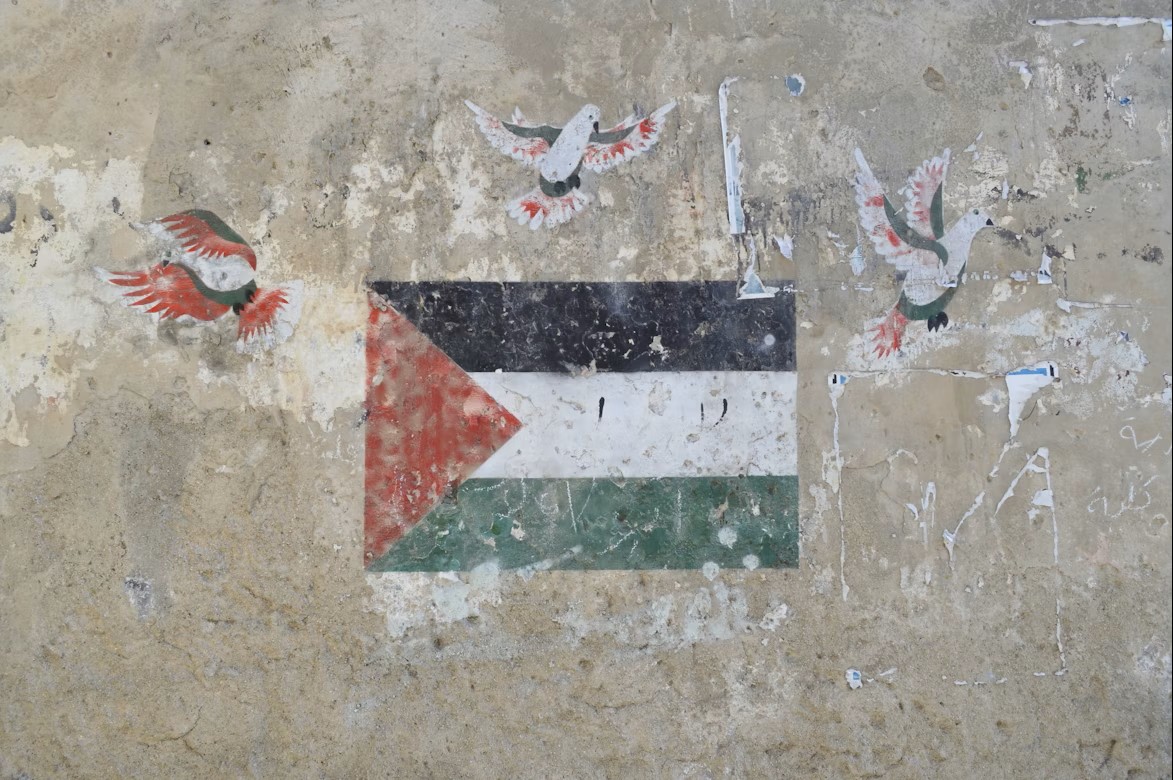In early 2025 – eighteen months into the ongoing genocide in Gaza – two of the authors attended a workshop at a leading European research institution in the field of migration and refugee law. The event’s theme and programme suggested a ‘critical’ atmosphere, an impression that was confirmed as it unfolded. Yet, when we voiced our unease at the participation of a scholar whose publicly held positions appeared closely aligned with the military goals of the Israel Defense Forces (IDF), the response was striking: the atmosphere immediately grew tense, several colleagues left, the event was abruptly terminated, and our intervention met with silence and reactions of distress, as if the topic itself were unspeakable. A comparable experience was described by Zisakou, Ballin, and Manganini who identified an ‘astounding absence’ within much of contemporary critical refugee law scholarship regarding Palestine. Others, too, have noted the systematic silencing and repression of voices on Palestine across Western academia, extending well beyond our field (see here on this blog, as well as here and here).
This contribution builds on these encounters and the discussions they have sparked. We wish to provoke what we see as a long-overdue – yet crucial – discussion: Why is Palestine relevant for migration studies and what do (European) migration law scholars lose – academically, politically, and ethically – by ignoring it? Our goal is not to police disagreement but to highlight and contest Palestine’s ‘non-discussable’ character in academic spaces that otherwise claim criticality, despite its clear disciplinary relevance.
To substantiate our argument, we advance an open list of reflections that illuminate the deep, often overlooked, entanglements between migration and Palestine. They are organized into two sections. The first one highlights the apparent contradictions of what seems to be an ‘exceptional’ legal regime for the protection of Palestinians. The second section focuses on the epistemic foundations underpinning Zionism and contemporary migration regimes, particularly in the European context.
The ‘Contradictions’ of the ‘Exceptional’ Protection Regime of Palestinians
Palestinians hold a unique place in the international protection regime. Drafted with their displacement in mind, Article 1D of the 1951 Refugee Convention excludes from its scope persons receiving protection or assistance from UNRWA until such protection ceases. Funded largely by Western states, UNRWA provides humanitarian relief to Palestinian refugees and currently operates in Lebanon, Syria, Jordan, Gaza and the Westbank. Article 1D of the Refugee Convention and the establishment of UNRWA reflected the recognition of the UN’s responsibility for the displacement of Palestinians, following General Assembly Resolution 181/1947 (Partition Plan), which paved the way for the establishment of the Zionist project of Israel and the displaced Palestinians’ right to return to their territories.
Yet this ‘exceptionalism’ serves a twofold contradictory objective for the West. First, Palestinians have to settle for humanitarian assistance, being treated as passive victims and denied of any real political agency and right to self-determination that could threaten the colonial settlement of Israel (see here and here). Second, Palestinian refugees remain a humanitarian matter within the Middle East, away from the responsibility of Western states.
This special regime was transposed into EU law through Article 12(1)(a) of the Qualification Directive. Although intended to mirror Article 1D of the Refugee Convention, the CJEU has interpreted it restrictively: only those Palestinian refugees who have availed themselves of UNRWA’s protection may qualify – as opposed to all those who are simply eligible for such protection (for more details, see here). In response, UNHCR has urged Member States to use the Directive’s flexibility to adopt broader safeguards and ensure the widest possible protection for Palestinians, leading more and more European governments to adopt more flexible interpretations of the provision. That flexibility, however, is set to disappear under the forthcoming Qualification Regulation, which will preclude higher national standards. At the same time, the CJEU has issued favourable rulings affirming Palestinians’ entitlement to international protection under Article 12(1)(a), explicitly acknowledging both the devastation of Gaza and UNRWA’s inability to fulfil its mandate. Despite such progressive interpretations, UNRWA-registered Palestinians are not on an equal footing with other asylum seekers.
The seeming discrimination against Palestinian refugees does not end with their exceptional refugee status; it manifests before and after their refugee status determination. First, there are no legal pathways to reach protection (for detailed explanations, see here). The racialized nature of this absence is stark when compared to the swift activation of the Temporary Protection Directive for Ukrainians (see analyses here, here and here). By contrast, Palestinians face militarized borders, drownings in the Mediterranean, unlawful detention, and degrading treatment – all designed to prevent them from reaching European territory. Second, inclusion in Europe appears conditional on political silencing and subjugation to Zionism. After October 7th 2023, we witnessed the criminalization of pro-Palestinian demonstrations in Europe and a spree of deportation threats against their participants, disproportionately affecting migrants of Palestinian and, generally, Arab descent. Solidarity with Palestinian resistance is equated with terrorism or antisemitism, fueling Islamophobia and reinforcing racial hierarchies. Germany’s requirement that naturalization applicants recognize the state of Israel epitomizes this logic. Palestinians may thus be formally protected, but their political identity is subordinated: inclusion is granted only at the cost of denouncing their struggle for self-determination.
Israel’s atrocities in Palestine, and Europe’s complicity in them, are also highly relevant in the context of the EU’s external dimension of migration and asylum. This is particularly evident in the stated objective to ‘address the root causes and drivers of irregular and forced displacement’, clearly formulated in the Asylum and Migration Management Regulation. Equally important is the EU’s obligation under Article 21 TEU to ensure that its external action promotes ‘in the wider world’ principles of democracy, the rule of law, the universality and indivisibility of human rights, respect for human dignity, and adherence to the UN Charter and international law.
These contradictions are not accidental. They reveal how the legal exceptionalism applied to Palestinians is rooted in the same racial and colonial logics that structure Europe’s wider migration regime – the very epistemic foundations to which we now turn.
The Common Epistemic Foundations of Zionism and Contemporary Migration Regimes
Within critical legal scholarship, it is a commonplace that we cannot address the law without first interrogating its historical origins and the political interests it serves. From this perspective, Turner has argued that what matters more than the legal substantiation of apartheid or genocide in Palestine is uncovering the ‘structures and interests’ that constitute their underlying logic. Focusing on EU migration law, Corcodel has similarly drawn attention to the ‘epistemic foundations’ that sustain the unequal regimes of international mobility. As they convincingly argue, these structures or foundations are not neutral or accidental – they are deeply embedded in racial, colonial, and capitalist hierarchies. Building on this understanding, Chimni – among many others – warned long ago that no meaningful paradigm shift in international law or migration governance is possible unless these epistemic foundations are critically confronted and dismantled. Without doing so, any reform will remain cosmetic, and the exclusionary outcomes of the current system will persist beneath the surface of legal formality.
As noted above, we observe striking parallels between the epistemic foundations of the Zionist project and those underpinning contemporary regimes of (im)mobility fostered by the Global North. In this view, the multiple forms of violence that we are witnessing in Palestine are not fundamentally different from those inflicted on people on the move at the European borders and beyond, but a more intensified and brutal expression of the same exclusionary logics. This observation is best corroborated by the increasing attention that Israeli policies on Palestine have received from the current wave of neo-fascisms and ethno-nationalisms around the world, which regard them as a laboratory – that is, a reproducible model – of exclusion and management of racialized Others (see here, here and here). The irony is stark, given the deeply antisemitic records of some of Israel’s most vocal supporters in Europe, such as the French National Rally Party (‘RN’), the Alternative for Germany Party (‘AfD’), or the Swedish Democrats (see here, more generally). No migration scholar needs to be reminded of the great success of such political movements in shaping the migration agenda within the EU and beyond, as well as the great risk they pose over migrants’ rights and democracy in general.
Among the broad set of interconnected epistemic foundations that are common to the examined contexts, three are particularly prominent: race, colonialism, and exceptionalism. The centrality of race as an organizing principle – used to reaffirm White supremacy and construct the figure of the undeserving, threatening Other – has been convincingly demonstrated in both the Palestinian context and migration studies (see here and here). In both contexts, scholars have highlighted the essential role of institutional practices – including the Law – in naturalizing and sustaining racial hierarchies justifying the dispossession, exploitation, and, ultimately, physical annihilation of racialized Others. These processes are not abstract or merely ideological – they take material and spatial form, most visibly in the system of apartheid imposed on Palestinians, and in the border apartheid regimes of the Global North. Through these shape-shifting processes, Palestinians and people on the move are simultaneously cast as an existential threat to Western civilization and pitiable victims of barbaric forces – whether Hamas or human smugglers or traffickers – demanding the ‘humanitarian’ intervention of ‘civilized’ powers. In turn, these practices serve the additional purpose of erasing intra-group differences, homogenizing both whiteness/European-ness and their racialized counterparts (see here and here).
Racial hierarchies are not a contemporary invention; they date back to the very origins of European colonialism. From the outset, race was deployed as a tool to legitimize conquest, dispossession, and the exploitation of colonized populations, providing the ideological scaffolding for slavery, imperial expansion, and settler colonialism. Despite the formal end of colonial rule, the exclusion of formerly colonized subjects through racialization and other sociopolitical mechanisms continues to be reproduced within the contemporary global order – nowhere clearer than in the field of migration. Yet, these colonial legacies – whether overt or subtle – are typically disregarded by mainstream migration scholarship, which further struggles to recognize any responsibility on the part of the former colonial powers for the structural drivers of contemporary displacement. Against this ‘colonial aphasia,’ Zionism emerges as an anachronistic form of colonialism – an overtly colonial project within a nominally postcolonial world. As such, we argue that it provides a uniquely invaluable lens to examine the continuities between colonial and postcolonial forms of domination and to develop transformative claims between state responsibility and root causes of migration (in the same spirit as this and this).
The insulation of Palestinians and people on the move from the protective scope of international law is further reinforced through a pervasive logic of exceptionalism. In the case of Palestine, a form of ‘historical exceptionalism’ is typically invoked by the State of Israel and their Western collaborators to reject analogies with other globally condemned regimes – most notably, the South African apartheid. This rhetoric positions the Palestinian case as a uniquely complex justifying extraordinary measures, neutralizing critiques and deflecting calls for accountability. In the migration context, a different but similarly effective form of exceptionalism operates: the so-called ‘migration exception’ (explained by Silga here) or ‘political stranger exceptionalism,’ typically justified through what Costello terms the ‘statist assumption’ – the idea that state sovereignty alone provides sufficient grounds for the differential treatment of non-nationals. As a result, migrants are routinely placed in a legally sanctioned system of structural discrimination, where their exclusion and diminished rights are justified solely on the basis of their legal status as defined by domestic immigration regimes. In this light, exceptionalism becomes a constitutive feature of the international legal order. It functions to preserve racialized hierarchies of mobility, protection, and value, even under the guise of humanitarianism or legal neutrality.
Understanding these foundational tensions allows us to see why the cases of Palestine and global migration must be analyzed together: not as discrete crises, but as expressions of the same foundational exclusions embedded within international law and its adjacent regimes. Yet, despite the analytical urgency of these epistemic foundations, they remain underexplored and insufficiently theorized within mainstream scholarship. Bringing Palestine into migration studies is not only a matter of political solidarity but an intellectual imperative for confronting the racial and colonial logics underpinning the field itself.
Conclusions
The fact that the personal anecdote(s) opening this contribution took place in Europe is not a coincidence. It reflects an overwhelming sense of disconnection between our perceived commitment as European migration scholars and the suffering and dispossession of the Palestinian people. This disconnection has become even more striking since October 7th, 2023, as a lead weight has fallen upon us in the face of the ongoing devastation of Gaza. With some limited exceptions, European migration scholarship has become rare when it comes to addressing the many questions raised by one of the most protracted and visible cases of ethnic cleansing and genocidal violence in modern history for our discipline.
Against this silence, we argue bluntly: for migration scholars, standing loudly and unreservedly with Palestine is an unavoidable commitment. This is not only because of a general duty to show solidarity and consistency with the academic values we claim to uphold, the integrity of international law, and the ethical foundations of our work in the field of migration. It is also – and especially – because Palestine represents a theoretical and political battleground where many of the foundational tensions within migration studies are decisively playing out. This engagement is all the more crucial as the whole field of migration studies is currently experiencing a ‘decolonial’ and ‘reflexive turn’. To quote our esteemed colleagues, ‘the fight for a free Palestine is also the fight against capitalism, imperialism, settler colonialism, state violence, and nationalism.’
In short, we claim that Palestine is, among other things, a migration issue. It is one where the structural forces that underpin global displacement regimes – colonialism, racial capitalism, militarized bordering, legal exceptionalism – are revealed with unusual clarity. These dynamics, both in their foundations and implications, are laid bare in the Palestinian context, offering a unique opportunity to expose, challenge and counter them. Therefore, to study migration without Palestine is to overlook the very foundations of the field. We invite our colleagues and peers to take part in this conversation – to question, to engage, and to refuse silence – so that migration scholarship may finally reckon with the realities it too often excludes.

Pedro is a doctoral researcher in law at Dublin City University. His doctoral research critically examines how EU migration law conceptualises and responds to vulnerability, particularly within its treatment of migrants without legal status.

Alex is a doctoral researcher at Ghent University and a migration lawyer from Greece.

Janine Silga is an Assistant Professor of European Union Law at Dublin City University. Her research focuses on EU migration law and policy, and on the EU development policy.
